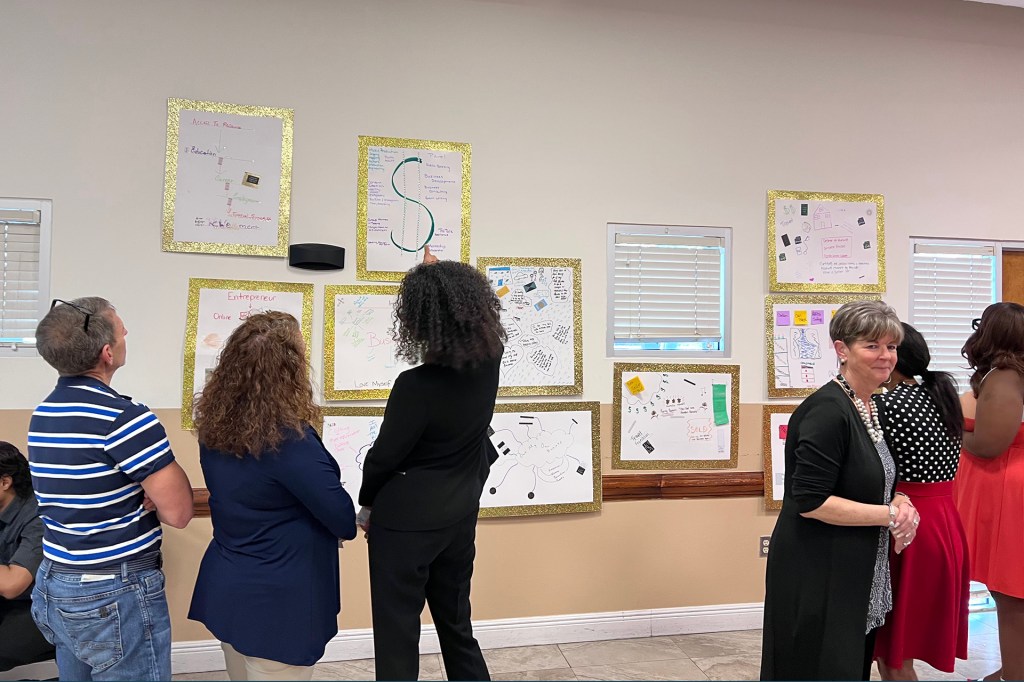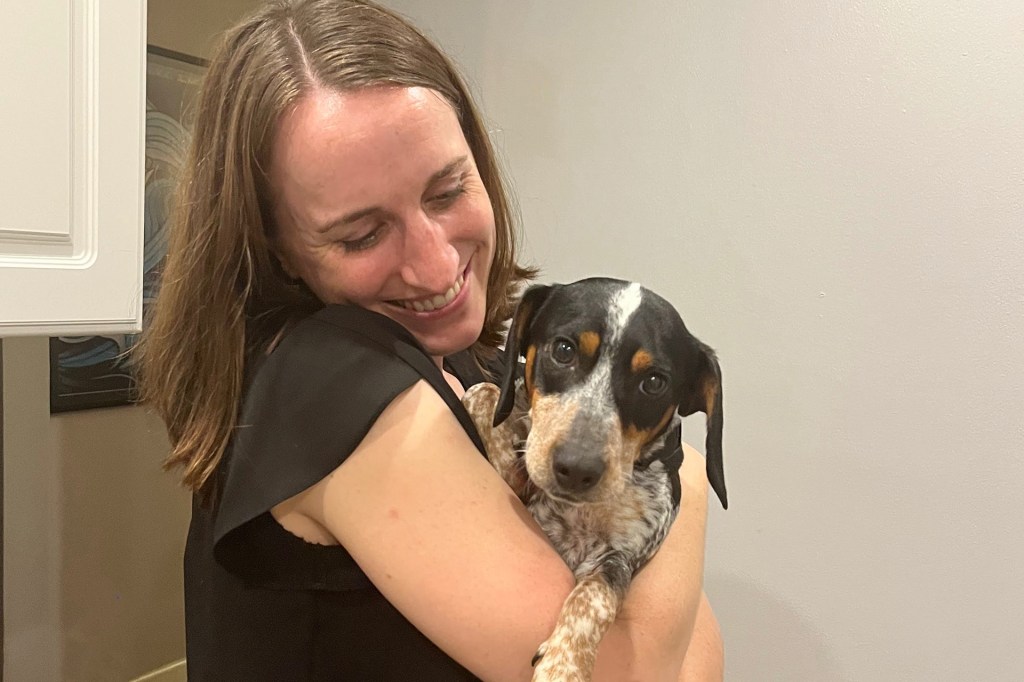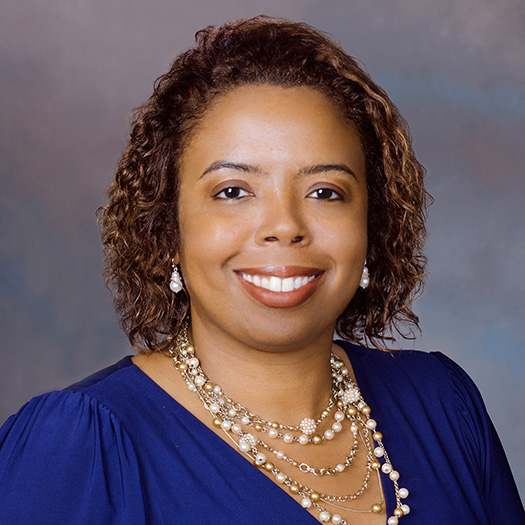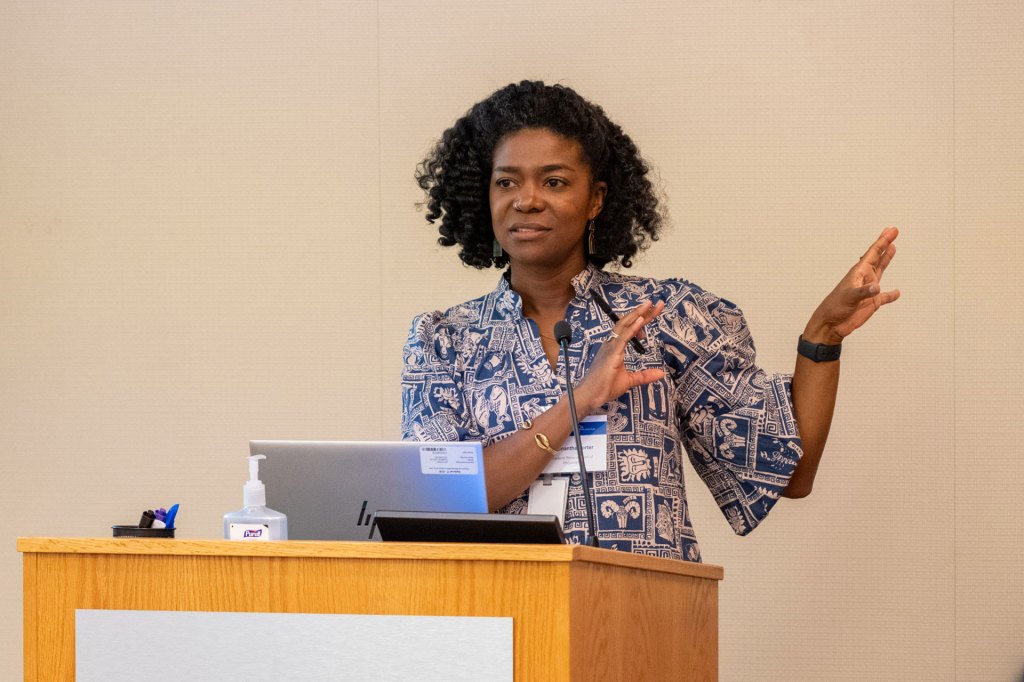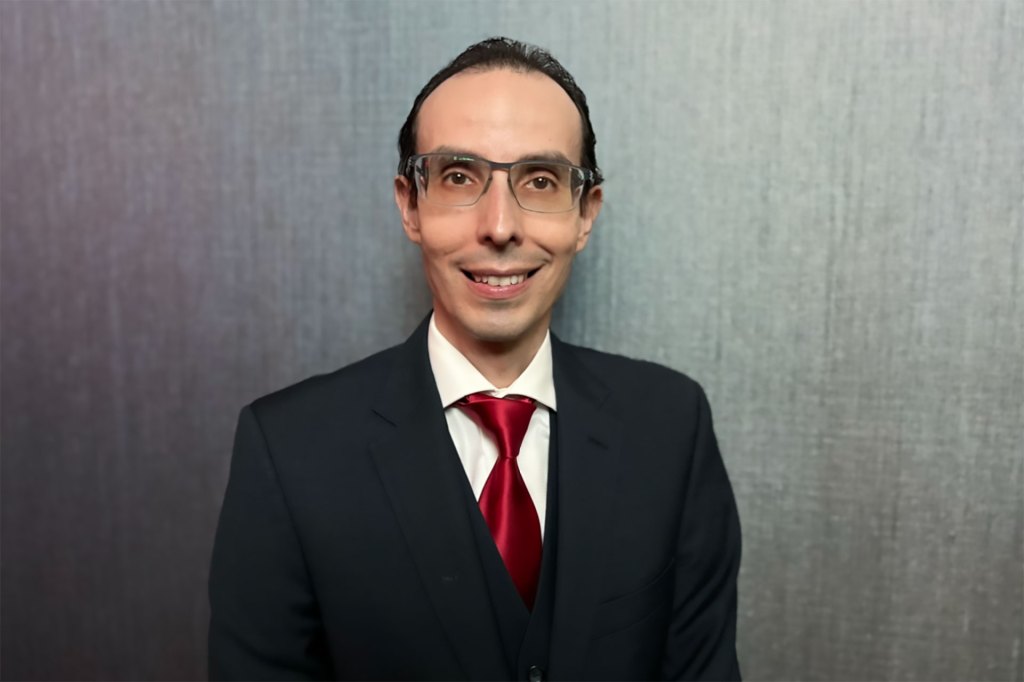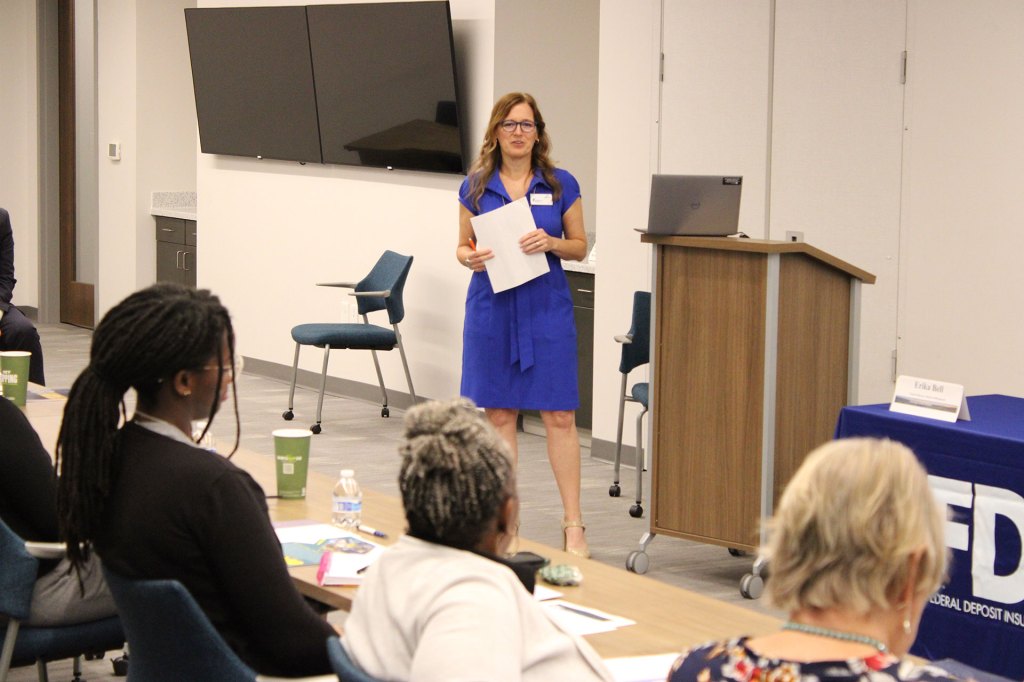Julie Siwicki, Community and Economic Development Adviser, Atlanta Fed with Ziggy, her former foster dog.
Research often calls to mind complex math calculations and endless data tables. It’s true that number-crunching frequently defines how Fed researchers work. But Julie Siwicki works hard to make sure the perspectives of community partners are part of the research formula.
“I use data along with people’s experiences to help inform Fed research and policymaking,” says Julie, a community and economic development adviser at the Federal Reserve Bank of Atlanta. “I focus most on how we can build on or add to research practices where we make sure to get to how the economy is playing out in people’s everyday lives.”
Recognizing the importance of conversations
Used in both quantitative (more numeric data) and qualitative (more interviews and observation) studies, participatory research aims to better connect with people in low- and moderate-income (LMI) communities. Instead of treating people simply as interview subjects, participatory research involves them as partners in shaping the process and understanding outcomes. While not new, the Fed has begun using this method more often to enhance statistical information. This approach provides a more complete picture of conditions in LMI communities.
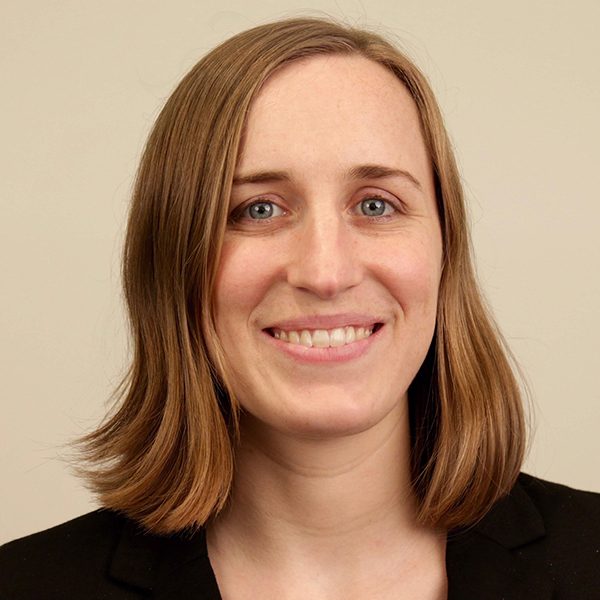
“I focus most on how we can build on or add to research practices where we make sure to get how the economy is playing out in people’s everyday lives.”
Julie became familiar with traditional research approaches during a seven-year stint on New York University’s U.S. Financial Diaries (USFD). This ambitious research studied the choices that more than 200 LMI households made about their finances over the course of a year. The financial diaries offer a combination of data and stories that explore how household finances shift over time and how financial choices influence peoples’ lives. “This work gave me a chance to build relationships through interviews, and then analyze and disseminate that data under a traditional research approach,” Julie says.
While she’s proud of the work that went into the study and the findings that came out of it, the experience left her with questions. “I remember sending publications back to people I’d interviewed, wondering whether they’d agree with how we represented their experiences. I saw opportunities to involve them more deeply in the interpretation and analysis process, beyond just sharing data about their lives.”
Since 2021, Julie has been a part of the Fed’s initiative to encourage the use of participatory research in community development projects. Four pilots are underway with the goal of helping LMI communities design research processes that results in mutually beneficial information-sharing. The Urban Institute has been a consultant to the Fed on this work through its Community Engagement Resource Center. “Our partnership (with the institute) and the pilots help the Fed think more expansively about research design and protocols,” Julie says.
Following the research path
Julie’s mother is a researcher in neurobiology and her father has a background in economics, which she says probably influenced her career choice. But travel abroad and research projects in college also impacted Julie’s decision to work in community development and research.
Not long after high school, Julie travelled to India where she gained a global perspective on inequality and poverty. “Now that I think about it, I could have looked not far into my own community, but I think seeing inequality and poverty in other countries started me down this path. I started to think about these issues in college,” she says. A major in economics and development studies, she interviewed people about their finances for her senior thesis. During another trip, she spent time in Bamako, Mali, where she spoke to women about how they used microloans and other financial tools to manage their households. Julie says this work gave her a chance to build relationships with people and translate what she heard into an analysis.
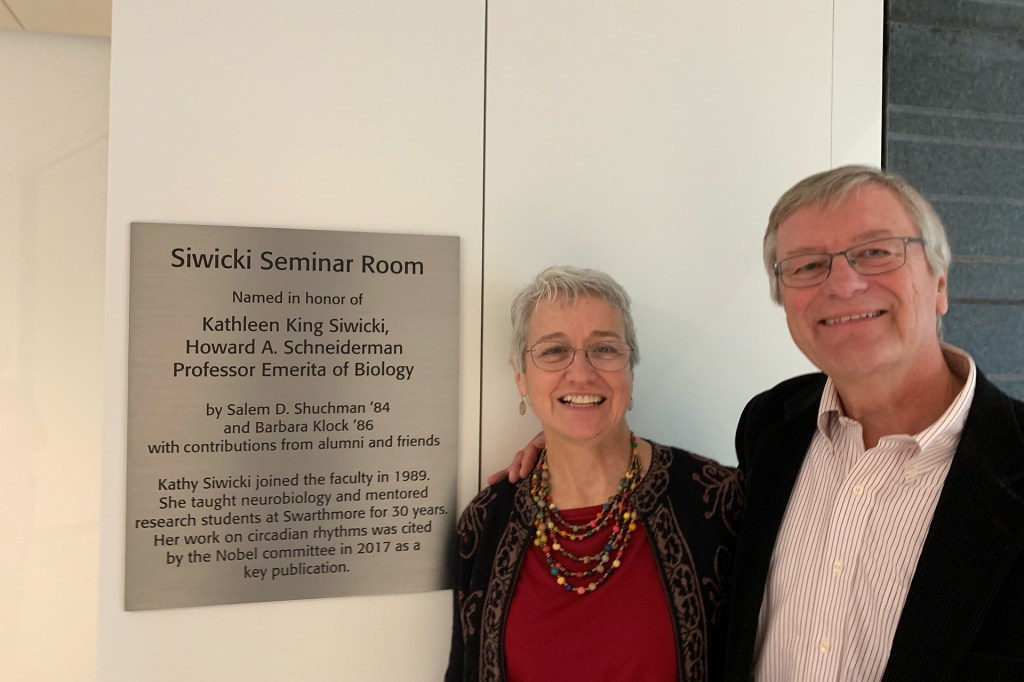
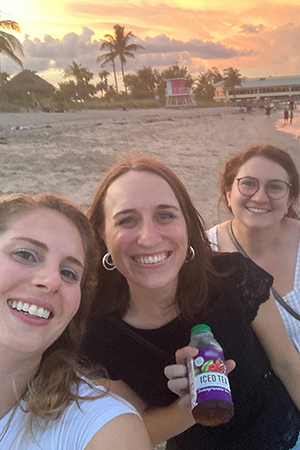
Supporting systems change
Those up-close interactions in college and her work at USFD help keep her focus on research that is inclusive. Julie appreciates how the Atlanta Fed’s community development team is working harder to listen carefully to partners, and how the information can benefit researchers and LMI communities alike.
One example is Prosperity Broward.
This initiative brings together multiple stakeholders in the Fort Lauderdale, Florida area to find ways to improve economic mobility in high unemployment zip codes. The Atlanta Fed has worked with Prosperity Broward to provide technical and research design assistance.
“We’ve helped them think through how to track progress and how they want to involve the people they want to impact in designing new interventions,” Julie says. “I can’t say that the Fed is necessarily the expert in that relationship. But we’re there at the table, learning with them, and helping them shepherd their approach to develop solutions that will help people get higher-paying jobs.
Including community perspectives
The mission to include voices from people who serve lower-income communities continues. Last year, several Reserve Banks added “Community Conditions” and “Community Perspectives” sections to the Fed’s Beige Book, a summary of anecdotal information about current economic conditions published eight times a year. These new sections provide insights on the economy from the perspective of nonprofit and community leaders and workforce professionals working in LMI communities. Historically, observations about conditions affecting those communities have come from the perspective of businesses.
Julie notes that she’s helping Atlanta’s CD team build out its strategy for listening to community partners. Part of what the team hears in its outreach is included in the new sections of the Beige Book. “I frequently ask how we can make sure that what we do is not stuck in the ivory tower preventing us from understanding what’s going on in the economy and people’s lives,” Julie says. “I always ask how we can add to our research practices in a way that makes sure that we’re not missing important information about how people are doing and how the economy is doing.”
